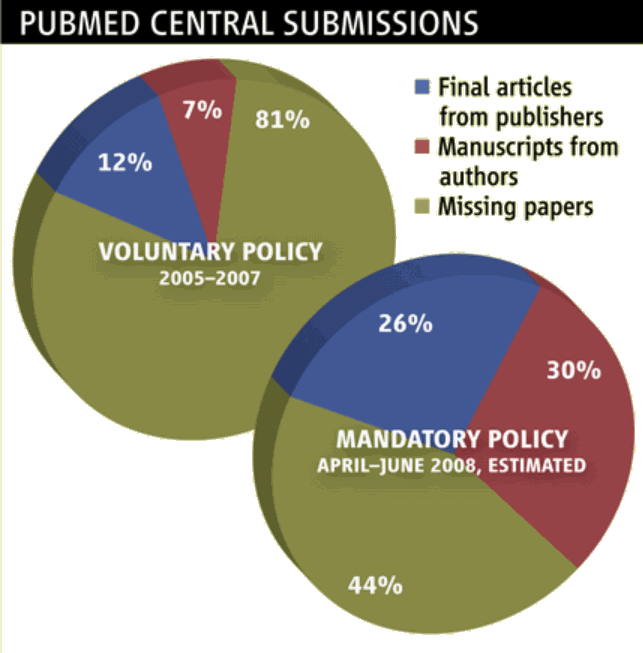|
|
|
|
|
|
|
News & Views item - September 2008 |
![]() Open Access Strikes Turbulence in US with Possible Australian Repercussions.
(September 19, 2008)
Open Access Strikes Turbulence in US with Possible Australian Repercussions.
(September 19, 2008)
Australia's federal Minister for Innovation, Industry, Science and Research, Kim Carr has said he intends to implement reforms aimed at "unlocking public information and content, including the results of publicly funded research".
The comment followed the publication of Terry Cutler's review of Australia's National Innovation System which advocates: "To the maximum extent practicable, information, research and content funded by the Australian governments ... should be made freely available over the internet as part of the global public commons. This should be done while the Australian Government encourages other countries to reciprocate by making their own contributions to the global digital public commons." And according to Senator Carr: "The arguments for stepping out first on open access are the same as the arguments for stepping out first on emissions trading - the more willing we are to show leadership on this, the more chance we have of persuading other countries to reciprocate."
The Times' ZoŽ Corbyn reports: "Colin Steele, chair of Australia's National Scholarly Communications Forum, told Times Higher Education that both the previous Government and the current Labor Government had supported the funding of university repositories, but in many instances the process has been slow because of 'high- level administrative indifference' within universities and publisher pressure to maintain only 'dark archives' of closed-access material. 'Minister Carr's statement, plus the whole government approach on public funding... and public access should provide the final impetus for change,' he said."
It would be pleasing were the Prime Minister to broach the matter, during his visit to Washington.
Beginning in 2005, the NIH asked its grantees to voluntarily deposit copies of accepted, peer-reviewed manuscripts with them to make them freely available through the PubMed Central archive within 12 months after they are published. However, following the poor compliance, proponents of open access persuaded the US House and Senate appropriations committees to tell NIH to make the policy mandatory.
The graph taken from Science shows the result.

Credit Science - Data from NIH
Now a number of publishers have complained that the "public access" policy infringes copyright, and adversely effects subscriptions to the point of unprofitability, and Science reported that at a 2-hour review of the policy, members of the US House of Representatives Judiciary Committee's "Subcommittee on Courts, the Internet, and Intellectual Property grumbled that by changing copyright rules, appropriators had overstepped their jurisdiction. Members heard testimony from both sides of the debate".
NIH Director Elias Zerhouni argued that PubMed Central is enhancing the papers by linking them to other databases. "The real value is in the full connectivity," not "the passive document" in archives, and "There is no evidence that this has been harmful [to publishers]".
However, law professor Ralph Oman of George Washington University in Washington, D.C., argued that NIH's policy is a "dilution of the rights of the copyright owners" and "will destroy the commercial market" for science and technology journals, although Science doesn't quote Professor Oman as presenting any corroborating data.
Science reports: "A bill introduced by Judiciary Committee Chair John Conyers (D-MI) would bar any federal agency from requiring "the transfer or license" to the government of a work that has been produced in part with nongovernment funds or to which value has been added by the publisher through peer review. The Fair Copyright in Research Works Act (HR 6845) would mean grantees could not be required to submit accepted papers to a free archive."
The bill is not expected to be examined by the full judiciary committees of both houses before next year.
It seems likely that Senator Carr is in for a rough ride if he intends to get serious about his promise to press for open access. Perhaps his experience as a tough factional fighter will win him the day, it'd be worth the candle.